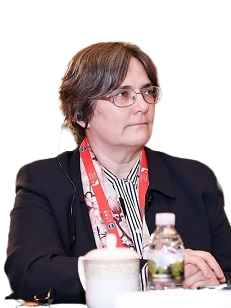
Marie Harder 英国皇家艺术院院士(FRSA),复旦大学环境科学与工程系教授;
SPECIAL AWARDS, HONOURS AND DISTINCTIONS
In 2011 I was offered a professorship to be taken up at Fudan University, Shanghai, P.R. China. This is a prestigious appointment at a world top-200 university which came with a 5-year research grant and the availability of a new PhD studentship each year. This appointment is in recognition of potential to develop internationalisation of researchers at Fudan in the general area of sustainability, and followed a selection process by advisors internationally (including in the UK).
In September 2016 I was awarded the Shanghai City Magnolia Award (Silver) for services to internationalisation in the metropolis.
In January 2018 I was invited to become a Fellow of the Royal Society of the Arts.
OVERVIEW
RESEARCH VISION AND EXPERTISE
The aim of my research is to use interdisciplinary research to make clear advances in modern challenges facing humankind. Although trained as a physicist, I now use design approaches to help move across and between disciplinary boundaries, especially waste management, behaviour scence implementation and sociology, treating them as integrated systems. I maintain the rigour needed for academic and pragmatic success by constant reference to unitary validity – especially requiring care with validity of representing the perspectives of the people involved (face validity), and validity of any measurements taken.
At the moment this have led to two main research foci:
1. Changing food waste diversion behaviour of residents in cooperation with Shanghai Municipality (population 24 million) through grounded theory building. Our recent recommendations were formally taken into the July 1st 2019 policy, which triggered 9,000 tonnes new daily diversion.
2. Crystallising and communicating local shared values of communities, e.g. in Senegal, Indonesia and India as a linking strand of work with health specialists on a UKRI GCRF Hub on Stunting; in Botswana for climate change adaptation planning; in Nigeria for village development; in Bhutan and Thailand for evaluation of values-based legacies of programs.
- 还没有人评论,欢迎说说您的想法!